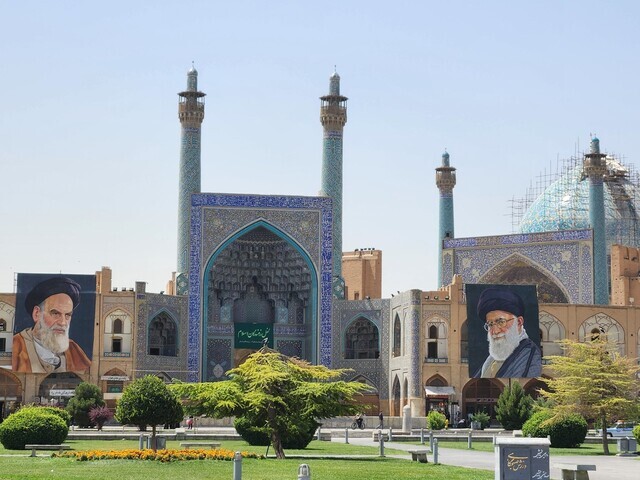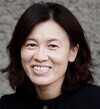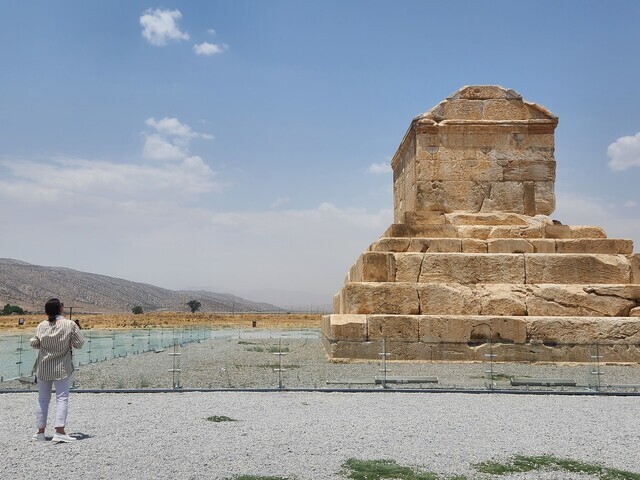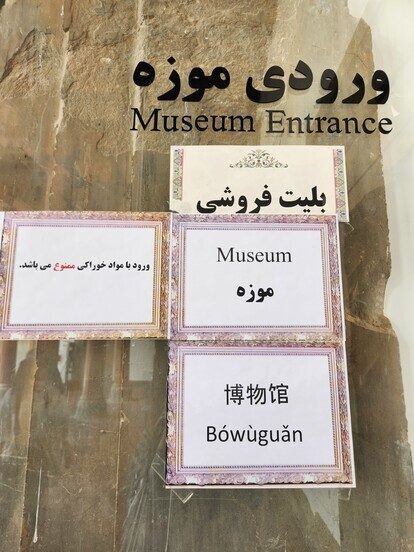hankyoreh
Links to other country sites 다른 나라 사이트 링크
[Column] Korea’s arrogant diplomacy and missed chances in Iran


By Park Min-hee, editorial writer
About an hour and a half drive from Shiraz in Southern Iran, Pasargadae is, at first glance, an unassuming ruin. Only a stone tomb over 2 meters high and the shattered remains of a former city remain.
It is the tomb of Cyrus the Great and the capital of his Achaemenid Empire, also known as the “world’s first empire,” in the 6th century BC.
Cyrus was known for his politics of inclusion, as he did not impose a particular religion and culture on his many conquered subjects. This emperor from centuries ago holds a special place in the hearts of many Iranians today.
Iranians who resent the Islamic ruling system’s imposition of conservative regulations often gather at Pasargadae to protest, saying, “The true ruler of Iran must be like Cyrus.”
When I visited Pasargadae on July 21, I met a woman without a hijab, who put her hand over her heart as she paid her respects at the tomb of Cyrus the Great.
The “Women, Life, Freedom” protests in honor of Mahsa Amini, a woman killed in September 2022 for not properly wearing a hijab, have been quashed. The crackdown has left many dead, blinded, and imprisoned. Resistance does continue, albeit silently. Many young women on the streets chose to not wear hijabs or only tied them around their necks, exposing their hair, demonstrating a resolute demand for change.
“It’s like we’re sitting on ashes,” shared Hossein, a merchant I met in Isfahan. “The ash buries the embers, but the fire can always be rekindled. Because everyone is enraged with what is happening.”

Life has been very difficult for ordinary Iranians since 2018, when then-US President Donald Trump unilaterally withdrew from the nuclear deal and tightened economic and financial sanctions on the country.
But for the privileged, sanctions weren’t so bad. Those with connections to the government, especially the military, obtained more opportunities to make money from smuggling, and Iranian conglomerates are reaping bigger profits in markets where foreign companies have disappeared.
The religious-military-industrial complex has become even stronger.
To counter US pressure, the Iranian government signed a comprehensive strategic cooperation agreement with China.
Chinese products and companies have filled the void left by the withdrawal of South Korean companies and products that were very popular in Iran due to US sanctions.
In late July, more than 90% of the foreign travelers I saw visiting Iran’s historical and cultural monuments in the cities of Isfahan, Shiraz and Yazd were Chinese.
In this “Sinicizing Iran,” South Korea seems unable to fit itself into the picture.

In particular, tensions have deepened over the roughly US$7 billion that South Korea owes for importing petroleum from Iran. It has been unable to pay the bill due to US financial sanctions and, as such, the money has been tied up in Woori Bank for more than five years.
Before Seoul can return the money, the US-Iran nuclear deal must be finalized and sanctions eased. Negotiations have repeatedly come close to a deal only to collapse, perpetually delaying South Korea’s promise to settle the years-old debt.
But Iranians I spoke to on the street felt differently about South Korea.
Some smile at the mention of Koreans and say, “Korea is very good.” Young women came up to me to chat in Korean and praise Korea. The popularity of TV shows such as “Jumong” and “Dae Jang Geum,” as well as pop groups such as BTS have engendered a growing fondness for Korean culture.
In contrast to the US, China, and Russia, within Iran, South Korea has a strong image as a developed country that doesn’t pose a threat.
It is difficult to see how South Korea can make a comeback to Iran without the US and Iran striking a deal and America relieving sanctions. But in the meantime, South Korea needs to continue to develop its diplomatic appeal as a “non-threatening developed country.”
We must not cut off the path to Iran, a country of 85 million people with some of the deepest historical and cultural roots in the Middle East.
Not only in Iran, but across Central Asia and Southeast Asia, South Korea is hailed as an “advanced country for manufacturing and culture” that has risen from the ruins of colonial rule and war.
In reality, South Korea is either indifferent or showcases arrogant biases in regard to its relations with various countries that do not fit its “Korean Peninsula and four powers” diplomacy.
It is symbolic that President Yoon Suk-yeol, who visited the United Arab Emirates in January, provoked backlash from Tehran by stating that Iran is the “enemy” of the UAE.
While Yoon decries his predecessor’s diplomacy as a “pro-China, pro-North Korea diplomacy focused on inter-Korean relations,” the question is whether South Korea will be able to pull itself away from the US’ diplomatic blueprint and establish an autonomous diplomatic plan.
Rather than relying on the smug slogan of becoming a “global pivotal state,” South Korea’s path lies in humble and inclusive diplomacy that broadens its contacts by learning more seriously about the history and realities of regions it has hereto regarded with indifference.
Please direct questions or comments to [english@hani.co.kr]

Editorial・opinion
![[Editorial] Silence won’t save Yoon [Editorial] Silence won’t save Yoon](https://flexible.img.hani.co.kr/flexible/normal/500/300/imgdb/original/2024/0701/681719819632087.jpg) [Editorial] Silence won’t save Yoon
[Editorial] Silence won’t save Yoon![[Column] The miscalculations that started the Korean War mustn’t be repeated [Column] The miscalculations that started the Korean War mustn’t be repeated](https://flexible.img.hani.co.kr/flexible/normal/500/300/imgdb/original/2024/0630/9717197068967684.jpg) [Column] The miscalculations that started the Korean War mustn’t be repeated
[Column] The miscalculations that started the Korean War mustn’t be repeated- [Correspondent’s column] China-Europe relations tested once more by EV war
- [Correspondent’s column] Who really created the new ‘axis of evil’?
- [Editorial] Exploiting foreign domestic workers won’t solve Korea’s birth rate problem
- [Column] Kim and Putin’s new world order
- [Editorial] Workplace hazards can be prevented — why weren’t they this time?
- [Editorial] Seoul failed to use diplomacy with Moscow — now it’s resorting to threats
- [Column] Balloons, drones, wiretapping… Yongsan’s got it all!
- [Editorial] It’s time for us all to rethink our approach to North Korea
Most viewed articles
- 1Japan is building a military meant for more than self-defense — and has the US to thank for it
- 2Yoon’s prosecutors are throwing everything at the president’s opponents to see what’ll stick
- 3[Editorial] Silence won’t save Yoon
- 4NewJeans rocks Tokyo Dome as new, younger generation of K-pop fans emerges in Japan
- 5[Column] The miscalculations that started the Korean War mustn’t be repeated
- 6Dreams of a better life brought them to Korea — then a tragic fire tore them apart
- 7What made Korea’s lithium battery plant fire so deadly
- 8Dispatched into unknown danger, foreign day laborers were defenseless against blaze
- 9‘Disposable’: How illegal temp work practices push migrants in Korea into risky jobs
- 10Moscow tells Seoul to rethink ‘confrontational course’